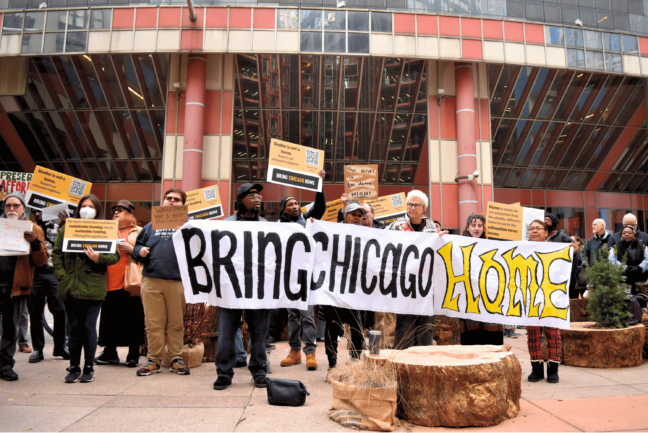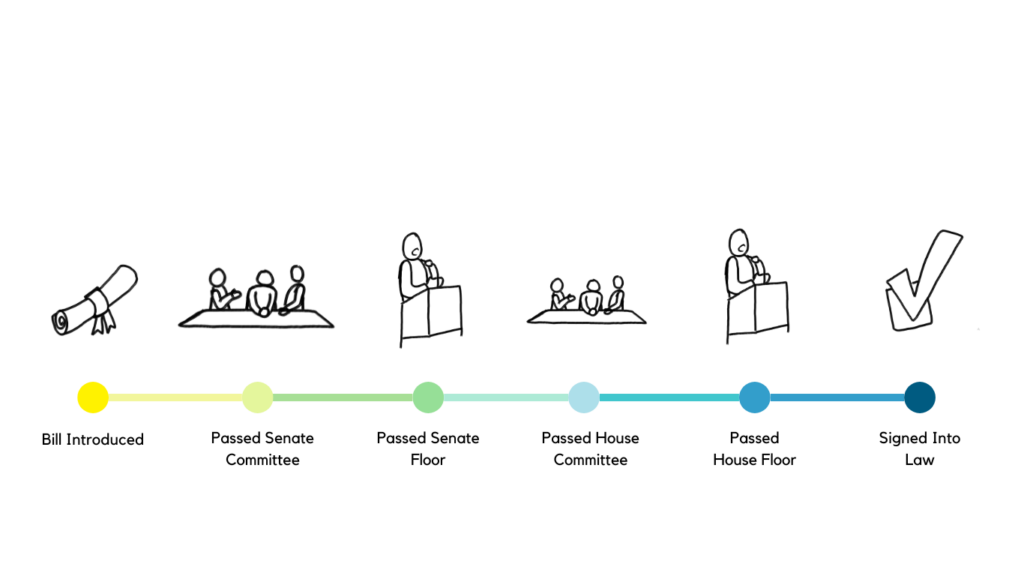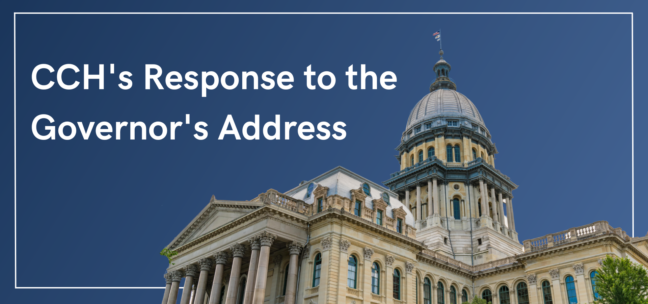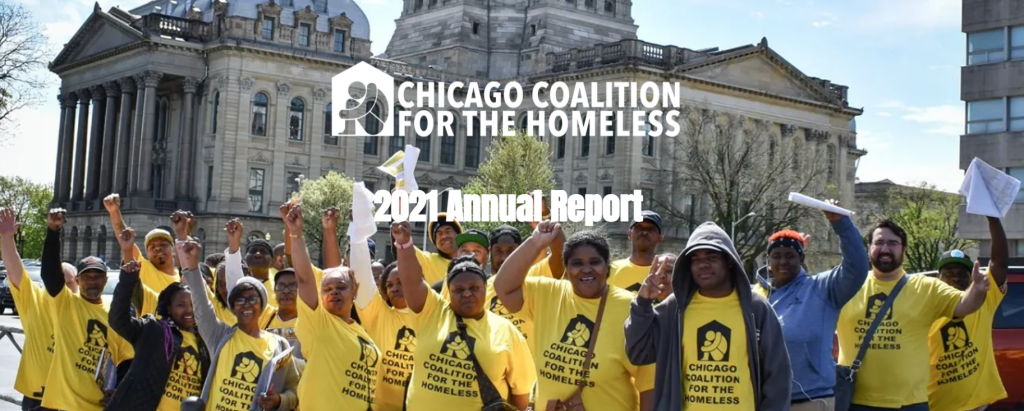The Importance of Voting
This upcoming election holds a special significance for Chicago Coalition for the Homeless. In addition to voting on key races at local and national levels, at the end of the ballot, you will find a referendum question – known as Bring Chicago Home or Ballot Question One – which would give the city the authority to restructure the city’s real estate transfer tax (the one-time tax paid when a property is bought) so that anyone buying a property for under $1 million would pay a lesser rate, and anyone buying a property for over $1 million would pay a marginally higher rate. All the new funds from the real estate transfer tax would be legally dedicated toward affordable housing and supportive services to prevent homelessness.
This moment has been years in the making. After years of organizing to create a dedicated stream of funding to address homelessness by amending the real estate transfer tax, the Bring Chicago Home coalition – convened by Chicago Coalition for the Homeless – successfully lobbied City Council to put a referendum question to authorize the restructuring of the real estate transfer tax on the ballot. The ballot question is a necessary legal step to pass an ordinance in City Council to implement Bring Chicago Home’s proposal.
Despite an initial court ruling suppressing the vote on the ballot, on March 6th that decision was overturned. This means that on March 19th – you will have the opportunity to vote on a proposal that would dramatically shift how Chicago addresses its housing and homelessness crisis. You have an opportunity to help Bring Chicago Home by voting YES on Ballot Question One.
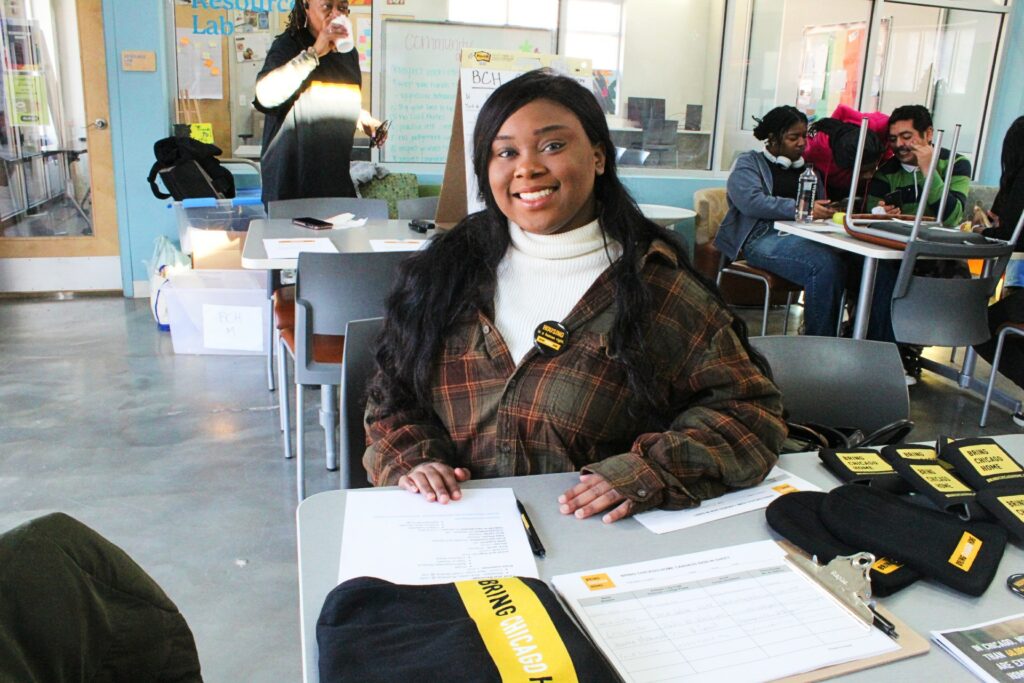
Voting While Experiencing Homelessness
All people experiencing homelessness – whether they are street-based, living in shelters, or doubled-up in the homes of others – have the right to vote. This right is protected by state and federal laws, including the 2013 Illinois Bill of Rights for the Homeless Act.
You can check online to see if you are registered here.
You can register to vote at an Early Voting Site OR on Election Day!
Any Illinois resident ages 18 or older can register to vote on Election Day at the precinct polling place assigned to their residential mailing address. Chicago residents can also register at the Loop Super Site located downtown.
You are required to bring two (2) forms of identification (ID) when registering to vote on-site, including one that shows proof of residence or a mailing address. Acceptable forms of ID include mail postmarked to the applicant; an Illinois driver’s license or state ID card; a municipal ID card (for example, the Chicago CityKey); an employee or student ID; Social Security card; birth certificate; credit card; valid U.S. passport; and lease or rental contract.
Illinois residents who are homeless have the right to vote in all local, state, and national elections, including the upcoming Primary Election on March 19th. Polls are open from 6 a.m. to 7 p.m. Illinois permits residents to vote early and request to vote by mail without providing an excuse or reason for this request. Also, Illinois residents can vote on Election Day even if they are not yet registered to vote.
As one form of ID, a person experiencing homelessness can provide a letter from a drop-in center, shelter, or the person in whose home they are living doubled-up. The letter must confirm that the named person has permission to use the address to register to vote.
To register to vote, you must be a U.S. citizen, at least 18 years old on or before Election Day, and not claim the right to vote elsewhere.
You cannot vote if you are currently incarcerated for a conviction. But, if you are in pre-trial detention and have not been convicted, you remain eligible to vote. Learn more about how to vote in pre-trial detention.
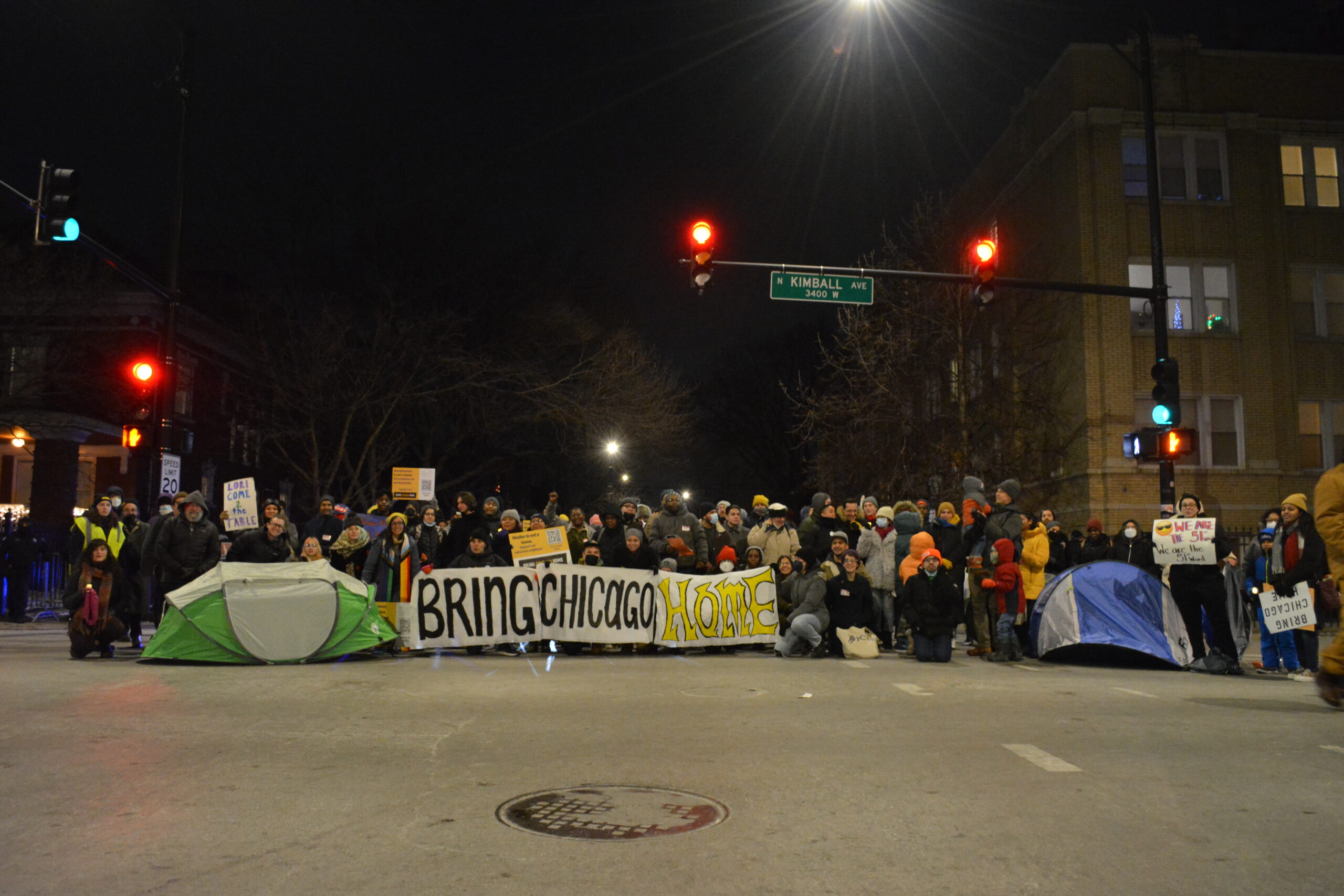
When is ID needed and not needed to vote?
Identification is not necessary if the person experiencing homelessness has already registered to vote at the polling place; the signature they provide matches the one on file; and an election judge does not challenge the person’s right to vote.
But identification is necessary in these situations:
- They registered by mail and did not include the Illinois ID/driver’s license number or Social Security number.
- An election judge challenges the person’s right to vote. Please note: A common reason for challenging a person’s right to vote occurs after the Board of Elections has sent mail to verify a voter’s mailing address, but the mail was returned.
- The individual is registering to vote on-site (see above)
If a voter needs to show ID but is unable to do so, they may cast a provisional ballot. For that provisional ballot to be counted, the voter must present ID within seven (7) days of the election to the Board of Elections.
Voting after a recent move, whether homeless or housed
If you moved within the same precinct within 27 days of the election, you can vote a full ballot by signing an affidavit.
If you moved outside of your precinct more than 30 days before the election and did not register in your new precinct, you may grace-period update your registration through Election Day, and then grace-period vote.
If you moved outside of your precinct less than 30 days before the election, but still live in Illinois and did not transfer your registration, you may grace-period update your registration to your new address through Election Day and grace-period vote. Or, you can vote a full ballot in your old polling place after completing an affidavit.
For Election Day assistance, call these legal help desks:
- Chicago Board of Elections, (312) 269-7870
- Cook County Clerk Karen A. Yarbrough office, (312) 603-0236
- Illinois State Board of Elections has phone numbers in Chicago at (312) 814-6440, and in Springfield at (217) 782-4141. Operators will be standing by until 11 p.m. in Chicago and until 12 midnight in Springfield.
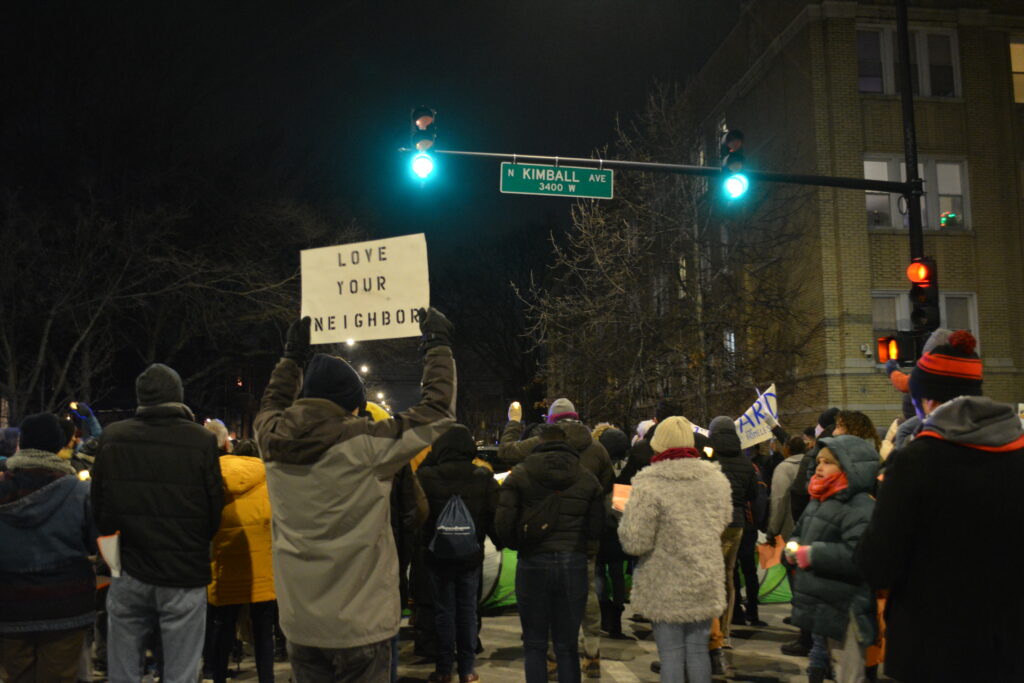
By Niya K. Kelly, Director of State Legislative Policy, Equity and Transformation

